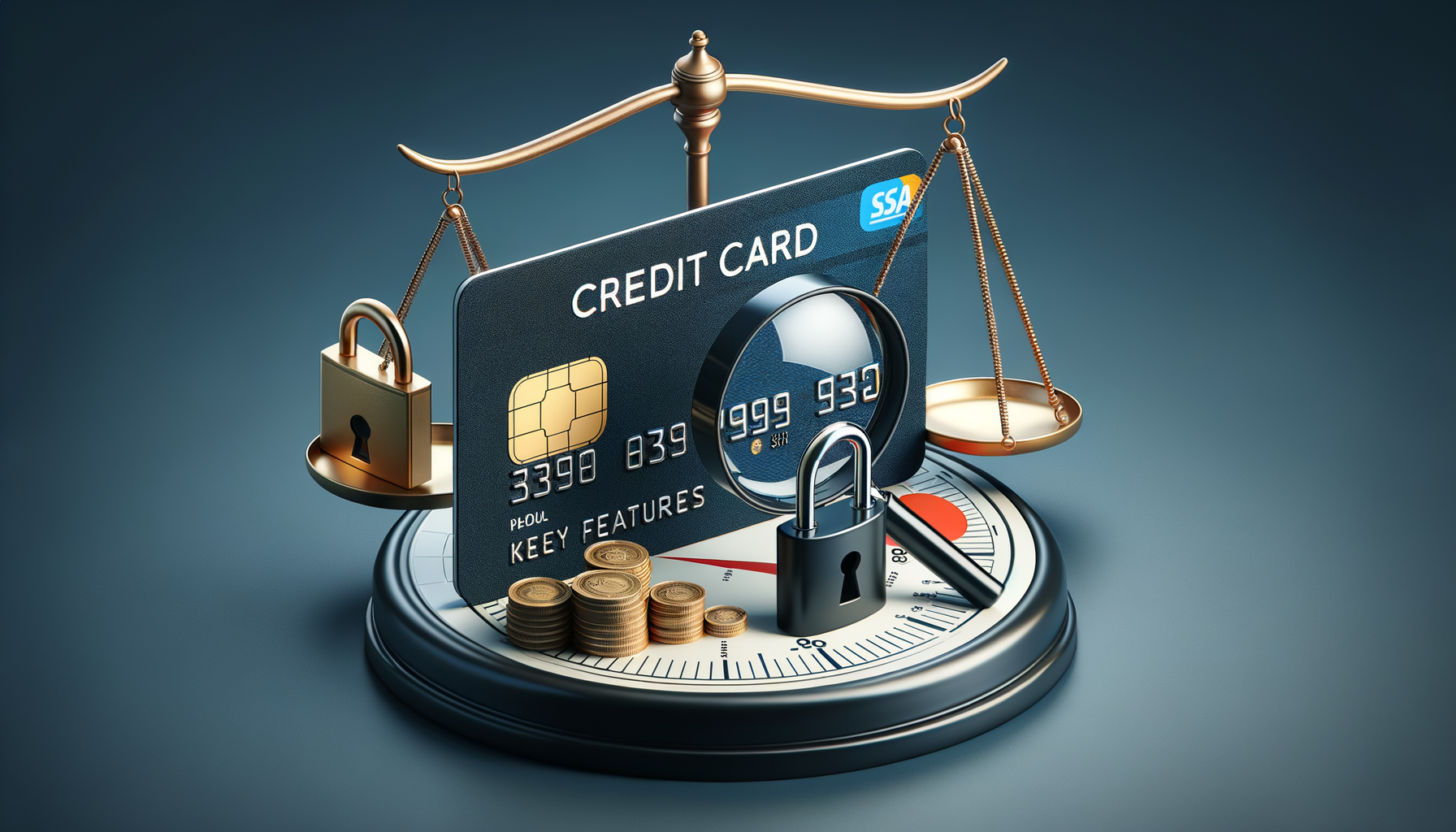The Basics of Credit Cards
Credit cards have become an integral part of modern financial systems, offering a convenient way to manage purchases and build credit history. These small plastic cards allow consumers to borrow funds up to a certain limit, which can be used for various transactions. Understanding the fundamental aspects of credit cards is crucial for anyone looking to leverage their benefits effectively.
At their core, credit cards offer a revolving line of credit. This means you can borrow up to a specified limit and pay it back over time, usually with interest if not paid in full by the due date. The interest rates can vary significantly, and it is essential to be aware of these rates to avoid accruing significant debt. Key components of a credit card include the credit limit, interest rate, and payment terms.
Credit cards also come with various fees, such as annual fees, late payment fees, and foreign transaction fees. It’s important to read the terms and conditions carefully to understand these costs. Additionally, credit cards can offer benefits like rewards programs, cashback, and travel perks, making them attractive to many consumers. However, responsible usage is vital to avoid falling into debt traps.
Benefits of Using Credit Cards
Credit cards offer several advantages that can enhance your financial flexibility and provide added value. One of the primary benefits is the convenience they offer. With a credit card, you can make purchases without carrying cash, and they are widely accepted both online and in-store. This ease of use can be particularly beneficial for frequent travelers or those who shop online regularly.
Moreover, credit cards often come with rewards programs that offer points, miles, or cashback on purchases. These rewards can be redeemed for various benefits, such as travel discounts, gift cards, or statement credits. By choosing a card that aligns with your spending habits, you can maximize these rewards and enjoy significant savings over time.
Another notable advantage is the ability to build a credit history. Regular, responsible use of a credit card can improve your credit score, which is crucial for securing loans and favorable interest rates in the future. Additionally, many credit cards offer purchase protection and extended warranties, providing peace of mind for large purchases. However, it’s essential to manage your credit card usage wisely to avoid high-interest debt.
Potential Drawbacks of Credit Cards
While credit cards offer numerous benefits, they also come with potential drawbacks that users should be aware of. One of the most significant risks is the potential for accumulating debt. With high-interest rates on unpaid balances, carrying a balance from month to month can quickly lead to substantial debt. It’s crucial to pay off the full balance each month to avoid these charges.
Credit cards can also lead to overspending. The ease of use and deferred payment can encourage consumers to spend beyond their means, resulting in financial strain. It’s important to set a budget and stick to it, using credit cards as a tool for convenience rather than a means to extend purchasing power.
Moreover, some credit cards come with high fees, such as annual fees or foreign transaction fees. It’s vital to compare different cards and choose one that offers the best value for your lifestyle. Additionally, missing payments can negatively impact your credit score, making it harder to secure loans in the future. Responsible management and timely payments are key to avoiding these pitfalls.
Choosing the Right Credit Card
Selecting the right credit card involves understanding your financial goals and spending habits. With numerous options available, it’s essential to compare different cards to find one that offers the most value. Consider factors such as rewards programs, interest rates, fees, and additional perks when making your decision.
If you travel frequently, a card that offers travel rewards or no foreign transaction fees might be ideal. On the other hand, if you prefer cashback on everyday purchases, look for a card with a robust cashback program. Additionally, consider the card’s interest rate, especially if you plan to carry a balance. Low-interest cards can save you money on interest charges.
It’s also important to check the card’s terms and conditions for any hidden fees or restrictions. Some cards may offer introductory rates or bonuses, but these can change after a certain period. Reading reviews and comparing different options can help you make an informed decision. Ultimately, the right credit card should align with your financial needs and help you achieve your goals efficiently.
Managing Credit Card Usage Effectively
Once you’ve chosen a credit card, managing its usage effectively is crucial to maximizing benefits and minimizing risks. Start by setting a budget and tracking your expenses to ensure you stay within your financial limits. Use your credit card for planned purchases and avoid impulsive spending.
Paying off your balance in full each month is one of the best ways to avoid interest charges and maintain a healthy credit score. If you’re unable to pay the full amount, aim to pay more than the minimum to reduce interest costs. Setting up automatic payments can help you avoid late fees and ensure timely payments.
Regularly reviewing your credit card statements is also important. This helps you track your spending and identify any unauthorized transactions. Many credit card issuers offer tools and apps to help manage your account, making it easier to stay on top of your finances. By using your credit card responsibly, you can enjoy its benefits while maintaining financial stability.




Leave a Reply